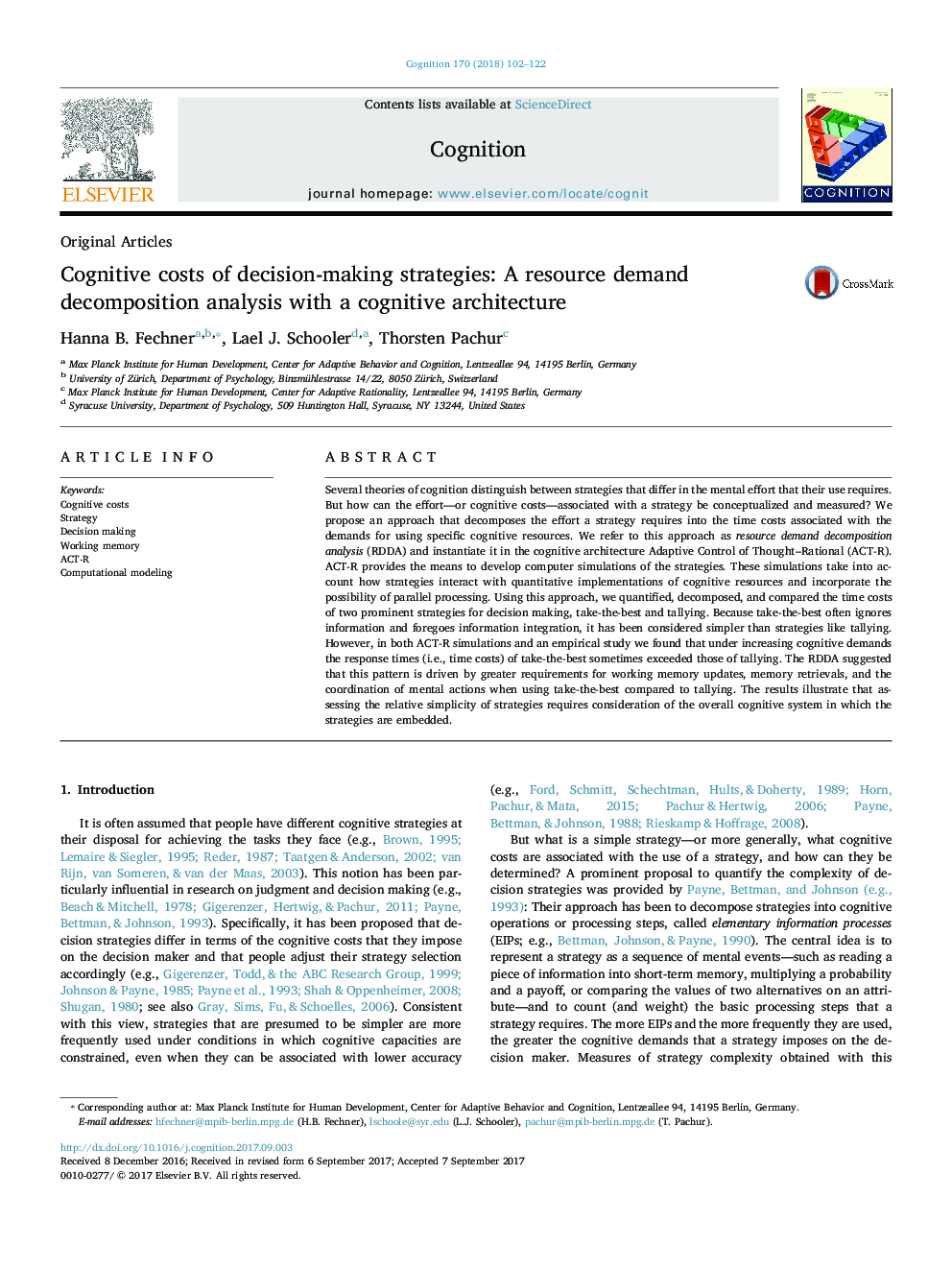| Article ID | Journal | Published Year | Pages | File Type |
|---|---|---|---|---|
| 5041404 | Cognition | 2018 | 21 Pages |
â¢We decompose the cognitive effort of decision strategies using ACT-R.â¢Our approach determines the strategies' time costs for using cognitive resources.â¢We compare the costs of the decision strategies take-the-best and tallying.â¢In our simulations and study, take-the-best was sometimes more costly than tallying.â¢This is due to costs of working memory updates, retrievals, and action coordination.
Several theories of cognition distinguish between strategies that differ in the mental effort that their use requires. But how can the effort-or cognitive costs-associated with a strategy be conceptualized and measured? We propose an approach that decomposes the effort a strategy requires into the time costs associated with the demands for using specific cognitive resources. We refer to this approach as resource demand decomposition analysis (RDDA) and instantiate it in the cognitive architecture Adaptive Control of Thought-Rational (ACT-R). ACT-R provides the means to develop computer simulations of the strategies. These simulations take into account how strategies interact with quantitative implementations of cognitive resources and incorporate the possibility of parallel processing. Using this approach, we quantified, decomposed, and compared the time costs of two prominent strategies for decision making, take-the-best and tallying. Because take-the-best often ignores information and foregoes information integration, it has been considered simpler than strategies like tallying. However, in both ACT-R simulations and an empirical study we found that under increasing cognitive demands the response times (i.e., time costs) of take-the-best sometimes exceeded those of tallying. The RDDA suggested that this pattern is driven by greater requirements for working memory updates, memory retrievals, and the coordination of mental actions when using take-the-best compared to tallying. The results illustrate that assessing the relative simplicity of strategies requires consideration of the overall cognitive system in which the strategies are embedded.
